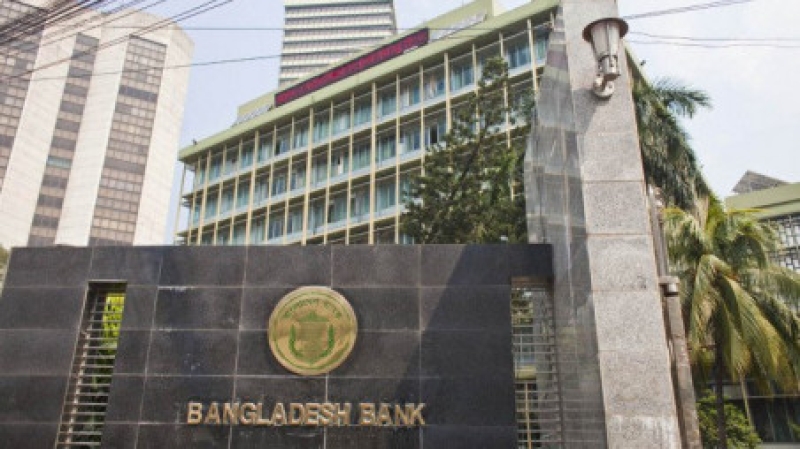- India Sees 9% Drop in Foreign Tourists as Bangladesh Visits Plunge |
- Dhaka Urges Restraint in Pakistan-Afghan War |
- Guterres Urges Action on Safe Migration Pact |
- OpenAI Raises $110B in Amazon-Led Funding |
- Puppet show enchants Children as Boi Mela comes alive on day 2 |
20 NBFIs in Crisis as Bad Loans and Erosion Deepen

Twenty non-bank financial institutions (NBFIs) in Bangladesh are facing a severe financial crisis, as their loan disbursements far exceed the value of the collateral secured against them, raising serious concerns about their ability to repay depositors.
According to Bangladesh Bank’s latest assessment, these 20 NBFIs have disbursed Tk 25,808 crore in loans, backed by collateral worth just Tk 6,899 crore — providing only 26.73% coverage. Most lenders typically require collateral equal to or greater than the loan amount to mitigate default risks. However, in these cases, the security coverage has fallen drastically short.
As a result, over 83% of their total loan portfolios have turned non-performing, severely straining their liquidity and prompting fears among depositors about the safety of their funds. Collectively, these institutions hold Tk 22,127 crore in deposits, with Tk 5,760 crore from individual savers and Tk 16,367 crore from corporate depositors.
The situation has forced many frustrated depositors to stage protests in recent years, demanding the return of their savings. While instability in the banking sector has drawn national attention, experts argue that the deepening crisis in NBFIs has largely gone unnoticed.
To address the crisis, the central bank has begun exploring potential mergers among the distressed NBFIs, though the process remains at an early stage without a confirmed timeline.
The 20 troubled institutions include: CVC Finance, Bay Leasing, Islamic Finance, Meridian Finance, GSP Finance, Hajj Finance, National Finance, IIDFC, Premier Leasing, Prime Finance, Uttara Finance, Aviva Finance, Phoenix Finance, People's Leasing, First Finance, Union Capital, International Leasing, BIFC, Fareast Finance, and FAS Finance.
Bangladesh Bank’s investigation found that many of these companies issued loans without proper credit assessment. In several cases, collateral details were self-reported and lacked independent verification. The report recommended mandatory third-party audits of collateral claims to improve transparency.
Some of the worst-performing NBFIs include BIFC, which holds just Tk 22 crore in collateral against Tk 766 crore in loans, Fareast Finance with Tk 125 crore against Tk 888 crore, and People's Leasing with Tk 87 crore backing Tk 1,121 crore. Institutions like IIDFC and Union Capital have collateral coverage rates as low as 20% and 15% respectively.
Non-performing loans (NPLs) across the 20 NBFIs have reached Tk 21,462 crore, representing 83.16% of their total outstanding loans. For several firms — including FAS Finance, Fareast Finance, BIFC, International Leasing, Union Capital, First Finance, and People's Leasing — default rates exceed 90%.
In response, Bangladesh Bank has issued show-cause notices to these institutions, asking why their licenses should not be revoked.
Executives of the affected firms have pointed to multiple causes behind the crisis. The managing director of Union Capital admitted that their company submitted a recovery plan after identifying a mismatch between assets and liabilities. He said their investments became stuck due to defaults by major business groups. After the liquidation decision of People’s Leasing in 2019, depositor confidence collapsed, leading to massive withdrawal requests.
“Since then, we’ve been repaying clients solely from instalment recoveries. We’ve received no fresh deposits in years,” he said.
Experts suggest that the crisis reflects deeper structural problems in the NBFI sector. According to a senior professor at the Bangladesh Institute of Bank Management, most institutions failed to assess borrowers' repayment capacity and overlooked the importance of primary security.
Bangladesh Bank has acknowledged that at least 15 of the 20 institutions are no longer operational in a meaningful sense, with non-performing loans as high as 80% to 100%. An estimated Tk 9,000 crore will be required for potential resolutions through liquidation or mergers.
While 15 other NBFIs remain relatively stable, with collateral coverage of around 59% and a non-performing loan rate of just over 7%, sector-wide reform is now seen as critical.
Industry leaders have called for immediate liquidity support and central bank intervention, arguing that timely action could have prevented the current collapse. Without urgent measures, they warn, many depositors may never recover their savings.

